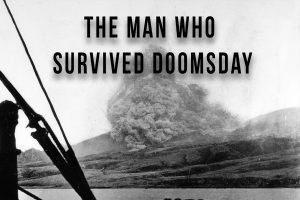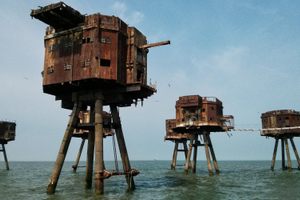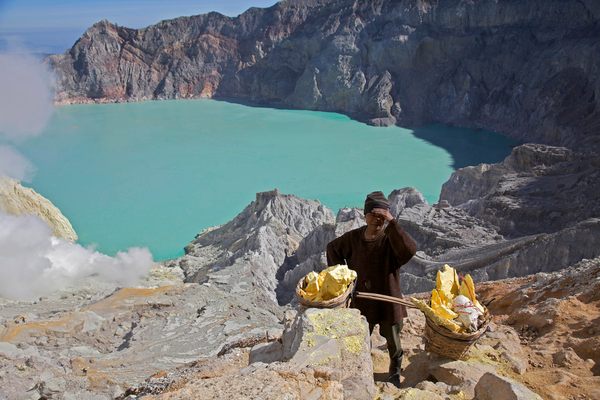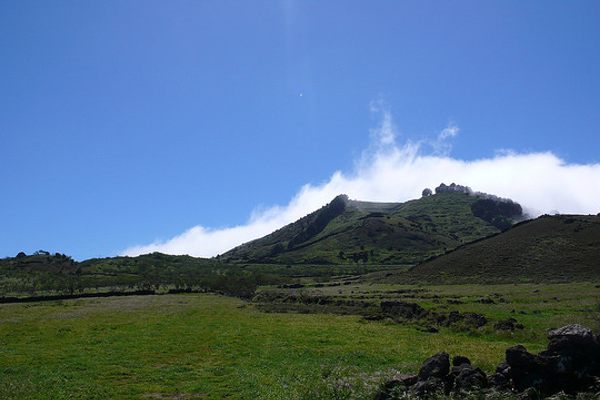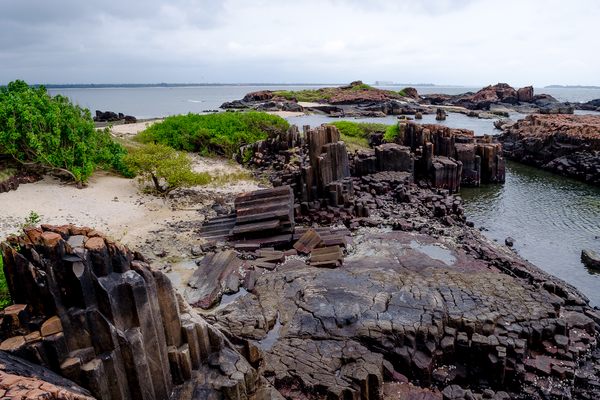About
The story of Ludger Sylbaris is so outlandish and astonishing that it is difficult to believe that it is true.
In fact, his story was so amazing that Barnum & Bailey hired him to travel with the circus, not because he had an act, but because he was a sort of relic. He claimed to be the only remaining survivor of a volcano that killed an estimated 30,000–40,000 people and flattened the city of Saint-Pierre (known as the "Paris of the West Indies") on the island of Martinique.
In reality, his claim of being the only survivor isn't entirely true. Still, his story is astonishing despite this detail.
Ludger was not a nice guy. Born in 1875 on Martinique, Ludger (his actual name was Louis-Auguste) was a convicted felon who liked to drink and liked to fight. So it was no surprise when he was arrested for getting into yet another fight on May 7, 1902. Irritated with his antics, the police threw him into solitary confinement, a tiny, half-underground cell with no windows and only a very narrow slit in the door facing out to sea. The police didn't realize it, but they had just saved Ludger's life.
The next morning, the apocalypse came to Martinique.
The Mt. Pelée volcano had been showing signs of erupting for over a week. Since modern vulcanology did not yet exist, no one knew what to expect. In fact, people had been planning to have a picnic on the volcano just three days before the eruption, but had to cancel due to the ash that was starting to come down. Just before the volcano erupted, thousands came from the countryside into the city to seek refuge. That was a big mistake.
Mt. Pelée exploded and a cloud of smoke darkened the sky for fifty miles around. A cloud of superheated volcanic gas and dust rolled out of the volcano at hundreds of miles per hour, destroying everything in an eight mile radius. Within a single minute, the 1,075-degree pressure wave had flattened every building in St. Pierre. Anyone unlucky enough to be in its way instantly caught fire and burned to death. Even those in shelters were suffocated as the wave of superheated gas burned up the oxygen and replaced it with deadly gases. People's lungs were burned from the inside by taking even a single breath. Nearly all 30,000 residents of the city were killed instantly, and the city burned for days afterward.
Ludger couldn't have been more lucky. He was found four days after the eruption by a rescue team who heard his cries. Despite being in the safest place on the island, he was horribly burned as the air in his room had flash-heated to over 1,000 degrees. Ludger described the experience of seeing the light coming through the slit grow dark, and then superheated ash flying in. He urinated on his clothes and stuffed them in the slit, but it didn't stop the heat.
Ludger wasn't the only one to survive the eruption, however. Sailors moored off the coast are said to have survived, as well as some residents of the island who are said to have died later from their burns. Of those who lived to tell of the event, only three names are known. One was a little girl named Havivra Da Ifrile. She is said to have seen the volcano beginning to erupt, and escaped by climbing into a boat and rowing to a cave where she and her friends used to play pirates. In her words: "Before I got there I looked back—and the whole side of the mountain which was near the town seemed to open and boil down on the screaming people. I was burned a good deal by the stones and ashes that came flying about the boat, but I got to the cave." She was found floating unconscious in a burned and broken boat two miles out at sea.
Another man, Léon Compère-Léandre, is said to have survived as well, though not much is known about him. It is unclear exactly how he survived. His own account describes being in a house during the disaster, but most scientists think that this is unlikely, and that he must have been saved by jumping (or being blown into) the ocean. He was thought to be a madman when he showed up naked and burned in the town of Fort-de-France. Leon's luck was the opposite of Ludger's, and he was nearly killed by the volcano twice more during subsequent explosions. He eventually died from a fall.
Ludger's luck, on the other hand, couldn't have been better. After surviving the volcano he was pardoned for his crimes, and hired to tour with Barnum & Bailey and tell the story of the horrific events he'd experienced. Ludger became something of a celebrity and was known as "the man who lived through Doomsday" and "the Most Marvelous Man in the World." It is thought by some that the night he was imprisoned he was actually being put away for murder, which was why he was in solitary, but that Ludger later told everyone it was just because of a fight. Either way, the eruption was Ludger Sylbaris' savior.
Today, the cell which saved Ludgers life can be visited in St. Pierre. The town never recovered from the devastation. Even today, over 100 years later, the town's population is only a few thousand. Pelée is one of the most active volcanoes in the West Indies, and it will likely erupt again.
Related Tags
Know Before You Go
The prison cell is found just north of the museum. It can also be viewed from above while visiting the ruins of the theater.
Community Contributors
Added By
Published
August 12, 2013




































